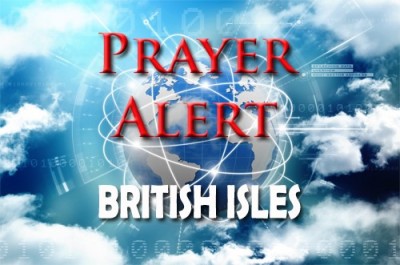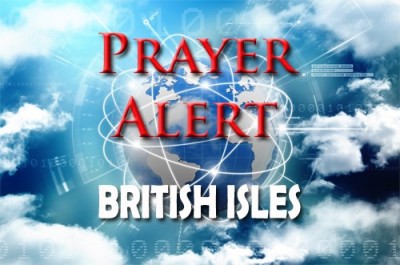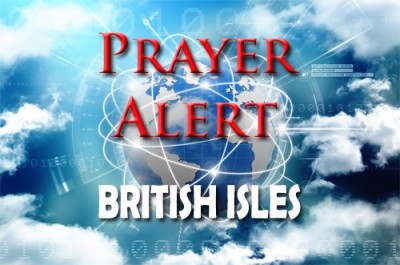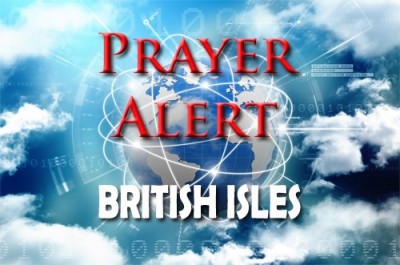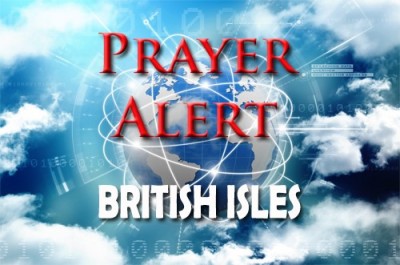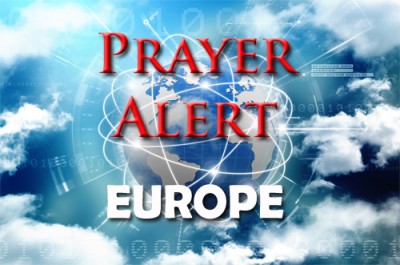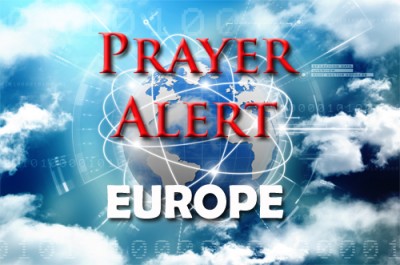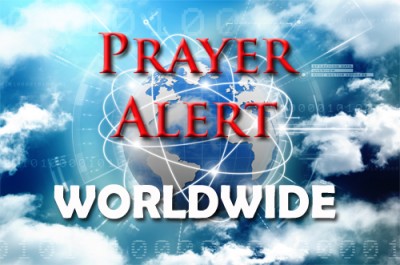UK ‘spy’ jailed in Iran
16 May 2019An Iranian woman has been sentenced to ten years in prison in Iran for spying for the UK. A spokesman, Gholam Hossein Esmaili, said the woman had been ‘in charge of the Iran desk’ of the British Council. The British Council seeks to foster cultural relations and educational opportunities in many countries worldwide, but does not have offices or representatives in Iran. It knew that one of its staff had been detained while making a private family visit. Mr Esmaili said she ‘confessed’ to ‘co-operating’ with British intelligence. She is accused of ‘acting against national security’ - a charge laid against a range of activists, journalists, dual citizens and foreign nationals detained in recent years. A London-based British Council employee and art student, Aras Amiri, who was detained in March 2018, is thought to be the jailed person.
Abortion
16 May 2019The Alabama senate has passed a law that says abortions should not be allowed in any circumstances apart from ‘risk to the mother's life’. A British Christian researcher, Katie Brookfield, disagreed with Alabama’s ruling. ‘The reality is that making abortion illegal does not end abortion, it drives it underground where it's extremely dangerous.’ Meanwhile, a pro-life campaigner said, ‘The Alabama ruling is a fantastic step in the right direction. But you can't celebrate it without taking a long hard look at our own situation. The UK government is pushing to decriminalise abortion totally up to 24 weeks, not recognising there are two people in the case of abortion. This is happening because the UK church, like the priest and the Levi, is choosing to look the other way, walk on the other side of the road and not see the truth. These little human beings are being disposed of and denied burial through every single abortion procedure.’
HOPE for all: 2020 vision
16 May 2019Roy Crowne, the Executive director of HOPE Together, writes, ‘Mission was on the Apostle Paul’s agenda when he said there is “one who plants… one who waters… but only God makes things grow… We are fellow workers in God’s service.” (1 Corinthians 3:6-9) Since 2008 HOPE Together and churches across the country have been sowing and watering seeds of the gospel, and we believe that God will produce a harvest. We are praying, preparing and trusting God for a harvest in 2020. Use the great opportunities that we have this summer to bring local people together, to sow seeds and to build community with fun days, fetes and festivals. Plan to water those seeds this autumn and winter as you help people to discover more about Jesus. Pray with us that we will reap a harvest in 2020 as churches all over the country invite people to respond to the message of hope that Jesus gives.’
Huawei: Britain still reviewing policy
16 May 2019On 16 May the prime minister’s spokesman was asked whether the new US sanctions against Huawei had persuaded the UK government to reconsider its telecom strategy. The Trump administration hit Huawei with severe sanctions on 15 May. British ministers have agreed to allow Huawei a restricted role in building parts of its 5G network, although the final decision has not yet been published. The spokesman said, ‘As you know, in relation to Huawei, we are reviewing the right policy approach for 5G and when an announcement is ready the culture secretary will update parliament. We are committed to ensuring that UK telecoms networks are fully secure, and any decision will be supported by a hard-headed, technically informed assessment of the risk.’ See also article 6 in the World section.
A nation in pain
16 May 2019Christian Voice says, ‘Who can doubt that there is something deeply wrong with the United Kingdom today? Everyone seems to be looking out for themselves, people have to be paid to care, few appear to have any honour or respect - from the top to the bottom. The Christian faith itself is under attack from the media and homosexual activists. Secularism is destroying our land, Christianity has been pushed to the margins, and Islam is waiting to fill the vacuum. The judgement of God is falling on us. How did it come to this? We must pray for our Government as never before, and pray that God will raise up men like John Knox and John Wesley to call the nation to repentance. We need to pray for our nation and its people, out of our love for our Saviour and the victims of injustice. But our prayer needs to be more than just: “Lord, do something!” It needs to be: “Lord, what can I do?”’
European parliament elections: Brexit Party
16 May 201973 MEPs will be elected in the UK on 23 May, and the Conservative party potentially faces an angry backlash from voters. Nigel Farage’s new Brexit Party has more support than the two traditional British parties combined. Britain’s education minister Damian Hinds said that the elections were a second referendum that would be difficult for Conservatives. The latest opinion poll gives the Brexit Party 34% of the vote, yet it was only founded in April. Fourteen of UKIP's seventeen MEPs have defected to it. Nigel Farage said there has been a breakdown of trust between people and politicians, as the two main parties have failed to deliver the result of the Brexit referendum. See
Germany: opening to God
16 May 2019Before refugees came, Germans never thought about religion. Germany was a ‘Christian’ country. Lutheran or Catholic was an insignificant part of life. Now that Muslims have come, religion is an issue. Germans are questioning, ‘How am I different from them?’ ‘What do I even believe?’ ‘What does it mean to be a Christian?’ and ‘Who is God?’ Communities are becoming more open now. Even Muslims are becoming disillusioned because of the things being done in the name of Islam, and questioning if they want to be a part of something that does such harm. The Spirit is working in converts to Christianity. Most are authentic heart-transformations, even though some are sceptical and disheartened by occasional fake proclamations of faith. Fake or not, despite the intentions of the heart, God’s Word does not come back void. The gospel is being preached, even though there is still much opposition from sceptical nationals and fearful refugees.
Singapore: Celebration of Hope 17-19 May
16 May 2019Thousands of Christians have travelled to Singapore to grow in the knowledge of God’s power and grasp the concept of Holy Spirit-led personal evangelism. They will become part of a Gospel rally led by Canon J John. The organisers expect that his message will encourage thousands to reach their friends and relatives with the Good News that Jesus Christ is Lord - the one name in which everyone can have solid hope. The vision is of personal evangelism on a mass scale, culminating in Gospel rallies at the 55,000 capacity national stadium over three days. Pray for all of them as they worship together and listen to the message of evangelism; may they duplicate the training learnt over the three days in their home churches. Pray for brokenness in spirit, oneness in the Body, and a bountiful harvest. See
